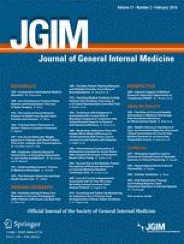 Patients’ reactions to a letter notifying them about collateral findings from a pragmatic clinical trial were unrelated to who signed the letter, the type of collateral finding, or the letter’s level of detail about the trial, according to a new study from the NIH Collaboratory.
Patients’ reactions to a letter notifying them about collateral findings from a pragmatic clinical trial were unrelated to who signed the letter, the type of collateral finding, or the letter’s level of detail about the trial, according to a new study from the NIH Collaboratory.
The article was published online ahead of print in the Journal of General Internal Medicine.
Collateral findings of pragmatic clinical trials are findings, whether discovered intentionally or unintentionally, that do not address the trial’s research question but may have implications for the health of patients in the trial. For example, when collecting data from electronic health records for a pragmatic trial, the researchers might detect the use of contraindicated medications in some patients. It is uncertain how best to notify patients of these findings.
Researchers from the NIH Collaboratory’s Ethics and Regulatory Core Working Group and colleagues from the Johns Hopkins Berman Institute of Bioethics conducted a survey experiment in which participants were randomly assigned to respond to 1 of 16 hypothetical scenarios. In each scenario, the participant read a letter notifying them of a collateral finding from a pragmatic clinical trial and asking them to contact their doctor immediately. The scenarios differed by who signed the letter, the type of collateral finding, and whether the letter included a detailed description of the pragmatic trial.
Participants’ reactions to the letter and their intention to contact their doctor immediately were not affected significantly by who signed the letter or whether the pragmatic trial was described in the letter. Participants’ reported level of understanding was generally lower for versions of the letter that included a description of the trial.
Read the full report.
This work was supported within the National Institutes of Health (NIH) Health Care Systems Research Collaboratory by the NIH Common Fund through a cooperative agreement from the Office of Strategic Coordination within the Office of the NIH Director. Supplemental funding for this work was provided by the National Center for Complementary and Integrative Health. The aim of the supplement, Management of Trial Incidental Findings Study (MOTIFS), is to develop an empirically informed, ethically sound approach to managing incidental findings in pragmatic clinical trials.
 In this Friday’s PCT Grand Rounds, Dr. Jeremy Sugarman, Dr. Stephanie Morain, and Juli Bollinger of Johns Hopkins University and Dr. Kevin Weinfurt of Duke University will present “Ethics and Collateral Findings in Pragmatic Clinical Trials: Implications of a Multi-Method Exploration.” The Grand Rounds session will be held on Friday, May 13, at 1:00 pm eastern.
In this Friday’s PCT Grand Rounds, Dr. Jeremy Sugarman, Dr. Stephanie Morain, and Juli Bollinger of Johns Hopkins University and Dr. Kevin Weinfurt of Duke University will present “Ethics and Collateral Findings in Pragmatic Clinical Trials: Implications of a Multi-Method Exploration.” The Grand Rounds session will be held on Friday, May 13, at 1:00 pm eastern.



 Patients’ reactions to a letter notifying them about collateral findings from a pragmatic clinical trial were unrelated to who signed the letter, the type of collateral finding, or the letter’s level of detail about the trial, according to a new study from the NIH Collaboratory.
Patients’ reactions to a letter notifying them about collateral findings from a pragmatic clinical trial were unrelated to who signed the letter, the type of collateral finding, or the letter’s level of detail about the trial, according to a new study from the NIH Collaboratory.